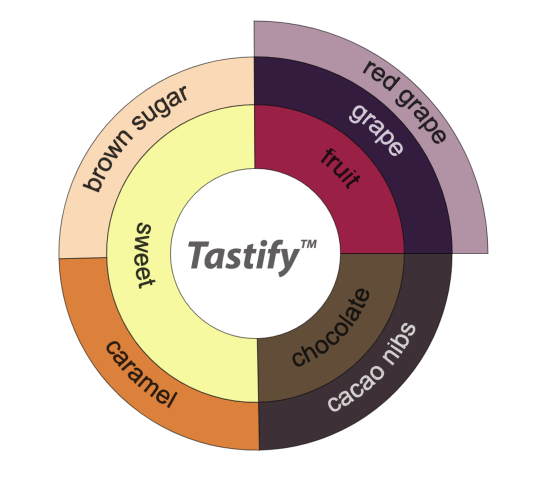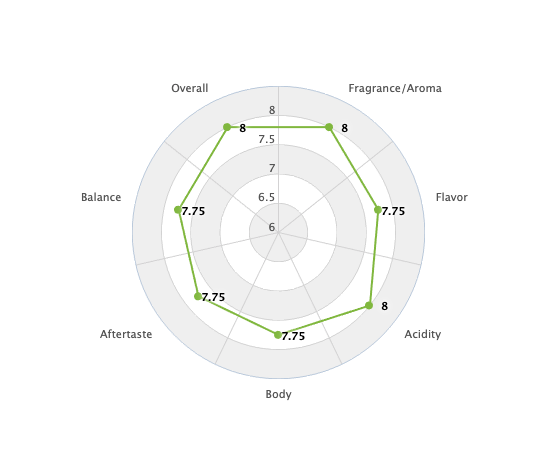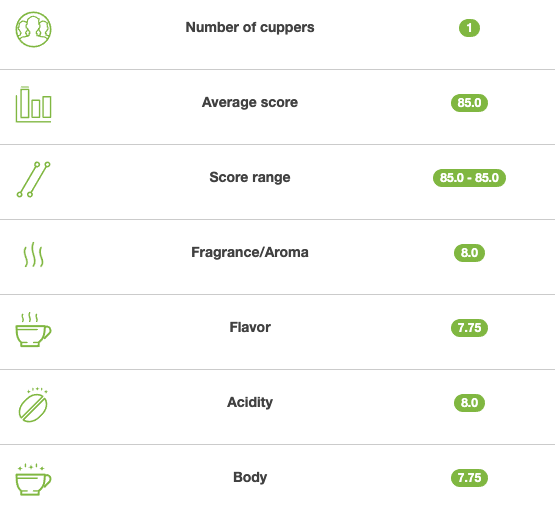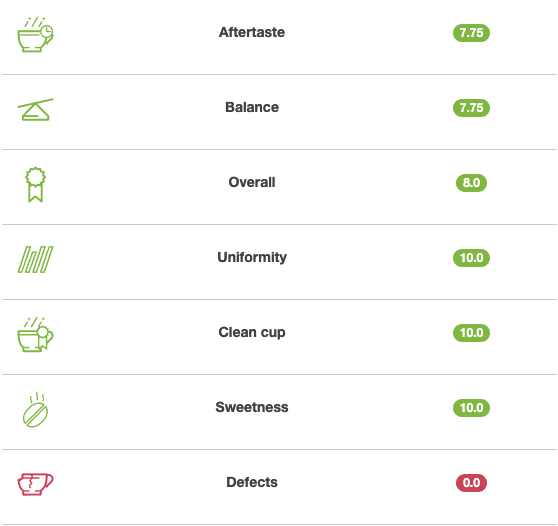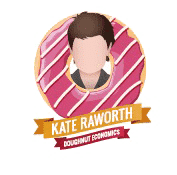Moyee is a company that salutes its heroes. We look up to them, admire them, sometimes we even wish we were them – come on, we all have our slower days at the office when daydreaming creeps in! For this unabashed reason, we occasionally find ourselves taking a quick time-out from rocking the world with our revolutionary FairChain coffee (hard to believe, but true). So today we’re devoting our wistful hours to a Brooklyn-based chocolate manufacturer called Madécasse. We caught up with, the co-founder and still the co-captain at the helm, to learn a little more about how he and his team of fearless revolutionaries are creating chocolate that is, quite literally –changing the world.
MOYEE: Brett, it seems that you and Tim came into the chocolate business rather indirectly. Tell us a bit about your time in Madagascar and how this affected your decision to start up Madécasse.
BRETT: It’s certainly been an adventure that led me here! It all began when Tim and I were volunteering in Madagascar with the Peace Corps, where we spent a combined eight years. It was a huge privilege to live amongst and get to know some incredibly warm and generous people during that time, and they’ve had an immense impact on our lives to this day. So I guess the starting point of Madécasse was really about finding a way to set up an ongoing connection with the people that would benefit the country in a really sustainable way. At first, this didn’t necessarily have to mean producing chocolate -in fact we first considered producing vanilla and even a couple of spices before seeing some real opportunities open up with chocolate. And looking back, chocolate has definitely been a great product for us –most importantly because it has a high value-add, which is exactly what we were looking for in a product. For example, did you know that by producing it in Madagascar we’re making four times the impact of fair trade? And that Africa grows 70% of the world’s cocoa, yet produces less than 1% of the world’s chocolate? How about this- Africa grows 65% of the world’s vanilla and yet produces less than 1% of the world’s vanilla extract?! They’re mind-blowing statistics when you think about them. So by going with chocolate we knew that we’d be able to make some real change that would improve people’s lives, and that’s what it’s all about. Plus, everyone loves chocolate- you can buy it just about anywhere and it’s an affordable luxury. This means it is purchased in high volumes, which is great for us and most of all, great for Madagascar!
Africa grows 70% of the world’s cocoa, yet produces less than 1% of the world’s chocolate. Africa grows 65% of the world’s vanilla and yet produces less than 1% of the world’s vanilla extract. They’re mind-blowing statistics when you think about them.
MOYEE: Now I’m sure you and Tim weren’t the only ones from the Peace Corps who were personally impacted from serving with the Peace Corps in Madagascar. And yet- you two have gone ahead and made it your mission to do something about what you saw there. What do you think it is about you two that instigated this decision?
BRETT: One of the main lessons from my time in the Peace Corps is that you can’t live in a country for two years and not be impacted by it. And this is especially true if you’re right in there living amongst the local people -rather than just cruising along parallel in a luxurious ex-pat lifestyle. So I was really fortunate because my own role during that time gave me a huge amount of close interaction with the locals, and these early relationships were all based on two-way knowledge-sharing and empowerment. From there, I went on to do development work with USAID, where again I saw that those personal relationships are hugely important –and this still holds true today in the way we run our company. Tim on the other hand, has his background in the corporate sector, so he’s a huge believer in the power of ‘trade not aid’. I share this view, it’s without a doubt the most effective approach to addressing development issues in a truly sustainable way.
But the great thing about working as an entrepreneur is that every day you wake up and nobody’s limiting you! This is the exact opposite of working for a huge corporation where you’ve really got your work pre-cut for you from day one, and all you have to do is fulfil a very limited and structured role. So I guess the thrill of working without limitations and then truly enjoying what I do for a living was something
I was looking for in my next career move when I started up Madécasse. And you’ll still see this echoed right throughout the company today –“we’re constantly challenging one another to move ahead and try new things –I can’t imagine working any other way!
MOYEE: You and Tim are known for your rather anti-conventional approach to addressing age-old problems, and your growing string of awards for innovation and social change is testimony to your ability to successfully put your words into action. Tell us more about this proud rebellious approach that sees you challenging the status quo at every turn -which we salute, by the way!
BRETT: The age-old saying is very true, that ‘necessity is the mother of invention’. When we first started up, we had very few resources, so we had to really dig deep to find what it was that we could offer the people of Madagascar. After a lot of reflection, we came to see that because we are Western-world consumers ourselves, we have expert knowledge of the American consumer mentality and the types of products that people in the US find desirable to buy. So we combined this very Western perspective with our new-found understanding of Madagascar and its people. From here, we came to see that our biggest asset was our ability to relate to –and essentially to bridge- this cultural divide by linking our expert knowledge from both sides of the global supply chain.
We set out to challenge the status quo and really push forward to lay the groundwork for larger companies to follow on later.
Then came what I guess you could call the ‘rebellious’ part of our plans. See, over the past generation we’ve seen an evolution of equity around the world as we awake from colonialism and open up trade barriers to make way for globalization. This has of course brought with it the challenges of inhumane working conditions as developing countries catch up to the ferocious demands of modern production. But despite these challenges, business leaders must take the step to produce in developing countries -and most importantly, to learn how to do this in an ethical and responsible way that cares for the people and the environment. And this is where small companies like us and Moyee come in, to build and demonstrate a way to bridge the north-south divide with sustainable business relationships that lead to mutual growth. We set out to challenge the status quo and really push forward to lay the groundwork for larger companies to follow on later.
MOYEE: You really started behind the eight ball when you first set out to produce high quality cocoa in Madagascar with farmers who had never even eaten chocolate. And yet you’ve succeeded! Tell us about some of the challenges you faced on the way to producing award-winning chocolate.
BRETT: Entrepreneurs face enormous challenges when they first set out to create and sell a new product or service –whatever that may be. For Tim and I, we were particularly disadvantaged at the start, given that we had to learn everything there is to know about chocolate –how the product needs to be designed, produced and packaged. Then there’s the market with its characteristics, trends and opportunities. We also had to build our supply chain from the ground up whilst learning all about legal, financial and political forces that would impact on it. And of course, learning how to facilitate effective communication across the huge distance between the US and Madagascar –this was a challenge in itself and is shared by all global companies spanning geographic, cultural and even economic divides.
MOYEE: What advice would you provide to aspiring companies and entrepreneurs?
BRETT: First, test your business idea in a small way. Just go ahead and run a mini-version of what you’re planning to do later. This crucial step tells you a huge amount about the hidden challenges involved with your endeavour -especially when it comes to production and logistics, which can turn into nightmares if not managed correctly. This will also tell you what resources you’re going to need later when you scale up, and also what the response is -at both ends of the supply chain.
“Second, research your competition very, very well.” I can’t stress enough how crucial this is, and yet how often it’s over-looked in the excitement of starting something new. This is something we should have spent much more time on when we first started up –instead, we basically just went for it and started selling chocolate …but I guess we got away with it!
Third, don’t try and start three or four businesses operations all at once. Take for example the way Madécasse operates today. We work with cocoa farmers -this is an agricultural operation; we ship to the US and Europe -this is a logistics operation, based heavily on communication and relationships; and we sell our products to these markets -these are sales, marketing and PR operations. But we didn’t start off with inherent expertise in each of these areas – it developed over a period of six years and only now we’re starting to see a promising and successful future for our business as a whole. So for new entrepreneurs there is a very real danger to try and start too many business operations all at once without taking the time to really become established and stable in any one of them.
MOYEE: You claim to be making four times the impact of fair trade cocoa. Tell us about what this means, and how you’re doing it.
BRETT: There is no question that the fairtrade movement has impacted the lives of many farmers in a meaningful way. However what fairtrade also does is shine a huge bright light on just a very small part of the production process –farmer wages and work conditions. So the Madécasse message here is really simple in that we look at each and every step in the production process to figure out how can add value at each of those steps. So we don’t just buy the cocoa locally in Madagascar, because that’s just one component of the finished product -we also buy the sugar, the wrappers and the packaging boxes. This means working with a whole range of local businesses in Madagascar which multiplies our economic impact throughout the local economy when those businesses also receive revenue. And then on top of that, we produce all of our chocolate in Madagascar, creating good and well paid jobs. So you can say that cocoa is just one of the spokes of the value wheel –for which we pay 1.4 times the standard fair trade price!
Value-adding is really a very simple idea: wine is much more valuable than grapes, roasted coffee is much more valuable than coffee berries, machines are more valuable than iron ore. And if you really want to know why wealth and poverty still exist today, just take a look around the world and have a look at who is producing our goods -because they’re the ones earning all the profit!
MOYEE: Madécasse has rocked the world of chocolate, but as a company you’re not just about chocolate -you also export vanilla, coffee, salt, pepper and coconut. Can you share any hints on where the Madécasse journey is heading? Where do you see the company being in five years time? Twenty years time?
BRETT: As a company, we’re about quality food and social change in Madagascar. So right now chocolate is certainly our main thrust, but in five years it could well move into new product lines, depending not just on what will be a great product for consumers, but also what will be most beneficial for Madagascar as a whole. So expansion is certainly on the agenda here at Madécasse because it gives us the chance to increase our social and economic impact. Looking more long term -and also more broadly across the industry- I think it would be great to see a whole segment of companies marketing value-adding products, coupled with a consumer market that is more aware of what value-adding really means for the local developing economies. And I’d like for Madécasse to contribute to a more common understanding of purchasing power and how it is truly capable of in alleviating poverty.
